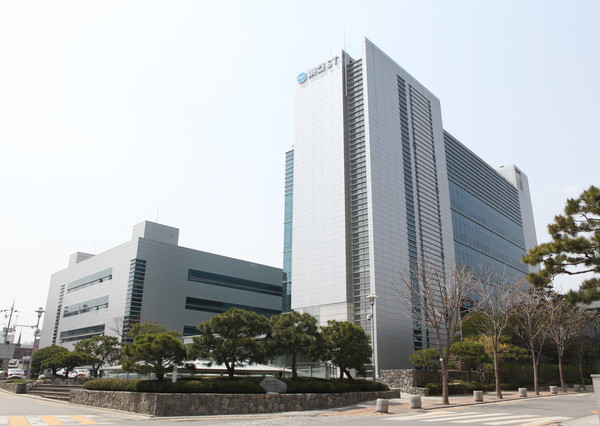Dong-A ST said Wednesday it released the results of the phase 3 clinical trial of Evogliptin plus three-drug combination therapy at the European Association for the Study of Diabetes (EASD) conference in Stockholm from Sept. 19-23.

Professor Yoon Keon-ho of the Department of Endocrine Metabolism at Seoul St. Mary's Hospital served as the clinical trial's principal investigator (PI).
The EASD is an international diabetes conference attended by more than 20,000 physicians and medical experts from about 130 countries. Professor Moon Joon-sung of the Department of Endocrine Metabolism at Yeungnam University Hospital presented the trial results.
The clinical trial is a combination of metformin and SGLT-2 inhibitors. Researchers additionally administered Evogliptin once a day for 52 weeks in type 2 diabetes patients with insufficient blood sugar control and compared its efficacy and safety to a placebo. Evogliptin is the main ingredient of the DPP-4 inhibitor new diabetes drug, Suganon, developed by Dong-A ST.
Two hundred and eighty-three diabetes patients participated in the clinical trial, showing average glycated hemoglobin (HbA1c) of 7.91 percent and average diabetes duration of 10 years. Changes in their HbA1c after 24 and 52 weeks were the comparison targets.
According to Dong-A ST, the change in glycated hemoglobin at 24 weeks after administration compared to baseline was -0.69 percent in the Evogliptin group and -0.04 percent in the placebo group, indicating a significant reduction of glycated hemoglobin in the Evogliptin group compared to the placebo group.
Dong-A ST explained that at 52 weeks after administration, the Evogliptin group significantly decreased glycated hemoglobin compared to the placebo group, confirming Evogliptin’s blood sugar-reducing effect until the 52nd week.
Besides, the proportion of patients who reached a target blood glucose level of less than 7.0 percent in the 24th week was 42 percent in the Evogliptin group, far higher than the placebo group’s 9.93 percent. Also, the comparable figure in the 52nd week was 32.14 percent for the Evogliptin group, proving its excellence compared to the placebo group, with 8.51 percent.
In addition, Dong-A ST said it confirmed a significant difference in the effectiveness of the Evogliptin group compared to the placebo group in fasting plasma glucose (FPG) and the mean daily glucose (MDG) changes at both 24th and 52th weeks after administration. However, according to the company, there was no significant difference between the two groups in the incidence of adverse reactions, including hypoglycemia.
Dong-A ST also stressed that Evogliption confirmed the preservation and significant improvement effect of the beta cell function through this study. Diabetes is a disease in which autoimmune reactions destroy pancreatic beta cells that produce insulin. Diabetes patients need to preserve and improve the beta cell function of the pancreas, which acts as glucose control in the body and controls blood sugar levels.
“This study has confirmed the improved effects of controlling blood sugar and improving beta cell function in the Evogliptin group,” a company official said. “We will continue to conduct various studies to promote the excellence of Evogliptin and improve the quality of life of diabetic patients.”

